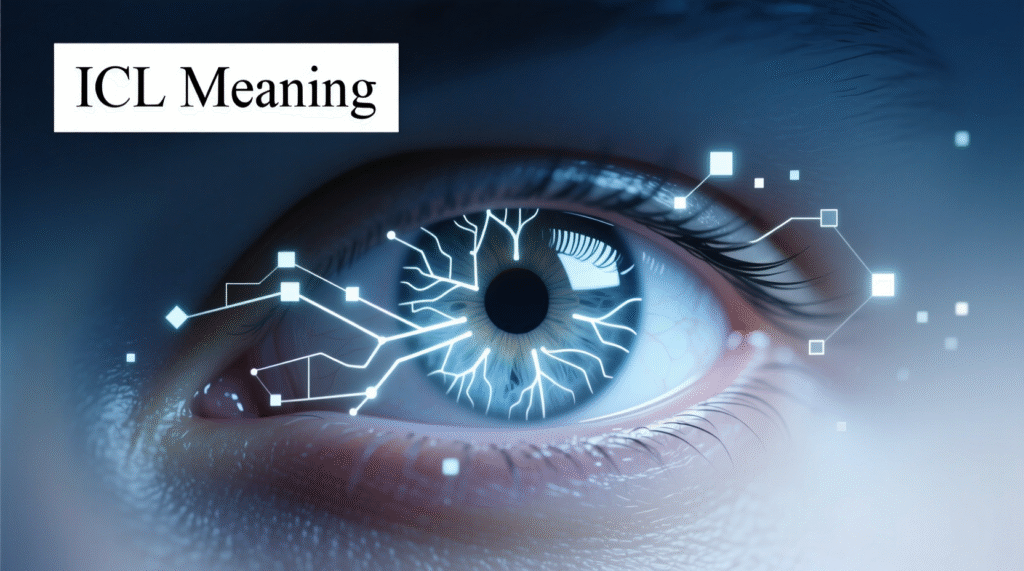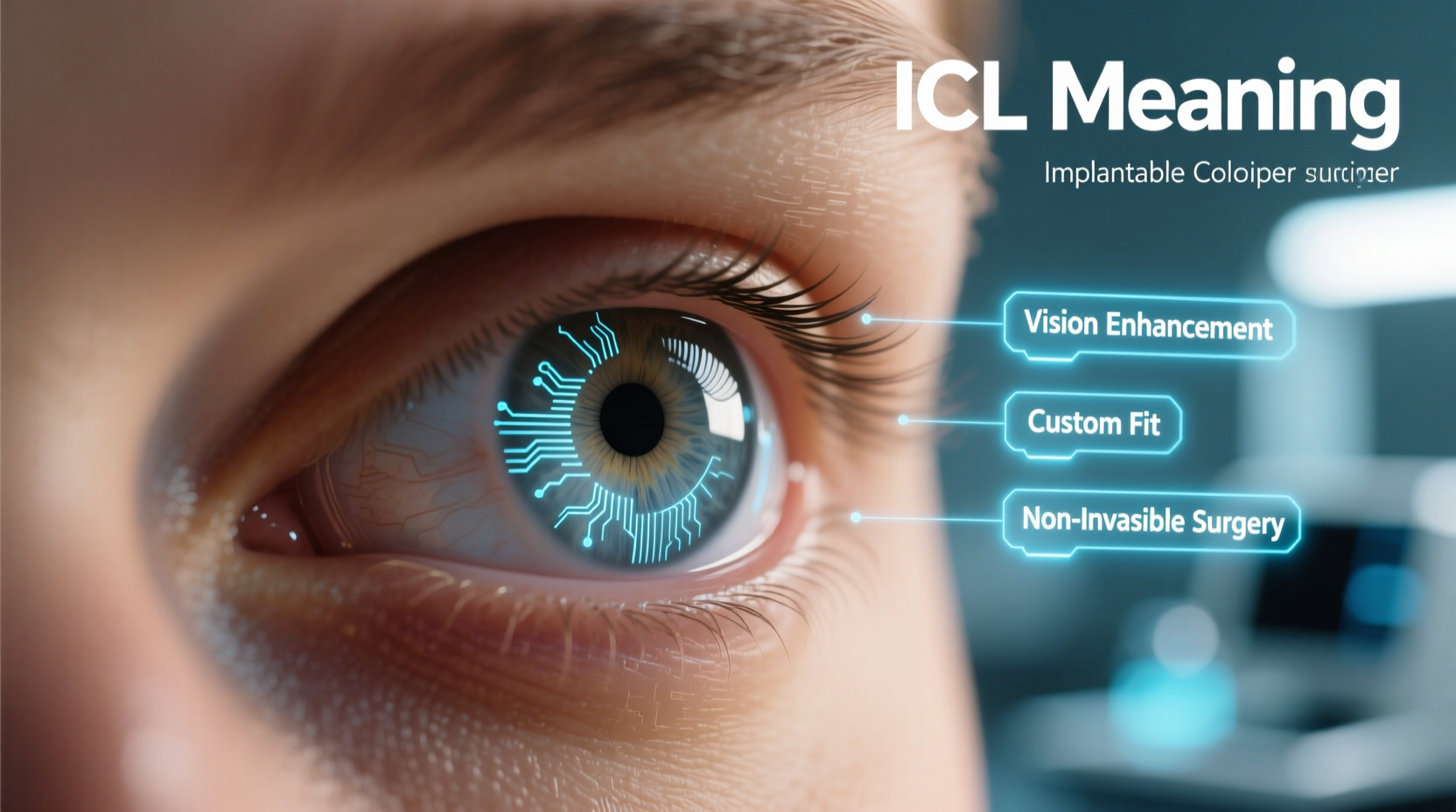In the ever-changing world of digital communication, acronyms evolve faster than we can count. From TBH (To Be Honest) to NGL (Not Gonna Lie), new abbreviations appear across Snapchat, TikTok, Instagram, and even Twitter every day. One such acronym that’s caught the attention of younger demographics and online communities is ICL.
But what exactly does it mean? And why does its meaning shift depending on context, platform, and audience? Let’s explore the Core Semantic Entities surrounding ICL, uncovering its various interpretations, semantic variations, and how it reflects the language nuances of our time.
What Does ICL Mean?
At its simplest, ICL is an acronym that carries context-dependent meanings. It’s one of those slang expressions that can mean different things in different communication channels. Understanding it requires strong context awareness and a sense of pragmatic inference reading between the lines to decode the speaker’s intended meaning.
The Acronym & Meanings (Central Entities) for ICL include:
- I Can’t Lie
- I Care Less
- In Christian Love
- I Chuckled Lightly
- I Cried Laughing
- In Cyber Life
Each version reveals a unique side of how people express honesty, emotion, faith, or digital identity in modern communication.
1. ICL = I Can’t Lie
(Honesty and Sincerity)
Perhaps the most common usage of ICL is “I Can’t Lie” — a phrase used when someone wants to express honesty or truthfulness. It mirrors other Alternative Expressions like “Truth Be Told,” “No Cap,” “Honestly,” and “Straight Up.”
In digital communication, people often use ICL in place of TBH (To Be Honest) or NGL (Not Gonna Lie). It adds a slightly more informal and conversational tone, often signaling emotional sincerity or an assertive speech act.
Example Scenario (Text Message)
Alex: ICL, that new Taylor Swift album hits different.
Jordan: For real (FR)! Her lyrics are pure poetry.
In this case, ICL acts as a discourse marker signaling genuine feeling — similar to saying “To be honest.”
💬 Pragmatic Note
The pragmatic meaning here emphasizes honesty and sincerity. It’s a form of emotive language and sentiment expression, often used to strengthen personal opinion.
2. ICL = I Care Less

(Indifference and Apathy)
Another interpretation is “I Care Less.” This version conveys indifference or apathy, often showing emotional distance. It contrasts sharply with the previous meaning, highlighting semantic ambiguity — where one acronym carries opposite emotional tones.
Example Scenario (Email)
From: Brenda.Taylor@company.com
To: Kevin.Parker@company.comHi Kevin,
ICL about the new logo redesign. Let’s go with the majority vote.
– Brenda
Here, ICL shows a professional yet detached stance — polite but emotionally neutral. The register and tone adaptation fits an email (professional context) rather than social media slang.
💬 Pragmatic Note
This use reflects language adaptation to professional discourse while retaining informal register. It represents a speech act (assertive) that communicates a lack of emotional investment.
3. ICL = In Christian Love
(Faith and Spirituality)
In religious contexts, ICL stands for “In Christian Love.” This version is most common in church groups, Christian forums, or faith-based emails, where messages are closed with warmth and spiritual goodwill.
Example Scenario (Faith-Based Email)
From: PastorLynn@hopecommunity.org
To: WorshipTeam@hopecommunity.orgDear Team,
Thank you for serving so faithfully this weekend. Your dedication brings light to our community.
In Christian Love,
Pastor Lynn
💬 Pragmatic Note
This use illustrates politeness strategies and emotive language typical of religious discourse. It embodies themes of faith and spirituality, expressing positive sentiment through traditional speech acts (expressive).
4. ICL = I Chuckled Lightly
(Amusement and Laughter)
In more humorous online exchanges, ICL means “I Chuckled Lightly.” It’s a playful way to show mild amusement — similar to typing “lol” but with a more refined tone. It’s often used among younger demographics in online communities that enjoy creative slang.
Example Scenario (Instagram Comment)
@MayaLaughs: ICL, your dog’s reaction to that ice cream made my day 😂
Here, the acronym functions as a slang expression signaling lightheartedness — part of an informal register with figurative language that reflects humor and relatability.
💬 Pragmatic Note
This meaning emphasizes amusement and laughter through contextual interpretation. It aligns with emotive expression and slang evolution in digital lexicon development.
5. ICL = I Cried Laughing
(Emotive Expression and Humor)
This interpretation amplifies the humor level — “I Cried Laughing.” It expresses a strong emotional reaction, similar to saying “I’m Not Joking” or “No Lie.”
📱 Example Scenario (TikTok Comment)
@TomTheCreator: Bro, ICL this video made me cry laughing 😂😂😂
Here, ICL combines emotive language and sentiment expression to intensify humor. It fits the platform norms of TikTok, where slang evolution thrives.
💬 Pragmatic Note
This meaning shows semantic flexibility — the same acronym used to convey both mild and intense laughter. It reflects cross-cultural semantics, where humor and expression vary by region and audience.
6. ICL = In Cyber Life
(Online Identity and Virtual Experiences)
Finally, in niche digital communication spaces — especially among tech enthusiasts and virtual reality users — ICL can mean “In Cyber Life.” This refers to one’s online identity, digital experiences, and participation in virtual communities.
💻 Example Scenario (Online Forum Post)
User: DigitalDylan99
ICL, I’ve spent more time in the metaverse this week than in real life. Anyone else?
This usage captures the blurred lines between online and offline identity, a growing theme in informal discourse analysis.
💬 Pragmatic Note
Here, ICL serves as a discourse marker for virtual experiences, representing a subculture shaped by language adaptation and slang evolution in cyber communication.
Understanding the Contextual and Semantic Flexibility of ICL
The meaning of ICL isn’t fixed. Its interpretation depends on several contextual and semantic categories:
| Factor | Influence on Meaning |
|---|---|
| Audience | Younger users interpret it casually; professionals use it sparingly. |
| Platform | Meanings shift between TikTok, Snapchat, and Email. |
| Tone | Can express sincerity, humor, indifference, or spirituality. |
| Cultural Context | Religious groups vs. digital natives interpret it differently. |
| Relationship Dynamics | Close friends use it playfully; colleagues use it formally. |
This semantic ambiguity showcases the richness of lexical semantics and pragmatic meaning in online communication. It’s a perfect example of how slang evolution and contextual interpretation shape the modern digital lexicon.
Related Expressions and Semantic Parallels
To grasp ICL fully, it helps to compare it with its Alternative Expressions (Synonyms / Semantic Parallels):
- To Be Honest (TBH)
- Not Gonna Lie (NGL)
- Truth Be Told
- No Cap
- For Real (FR)
- Honestly
- I’m Being Real
- Straight Up
- Real Talk
- No Lie
- I’m Not Joking
Each carries shades of honesty, authenticity, or humor, illustrating how people use discourse markers to adjust tone, register, and sentiment in conversation.
Linguistic Insights: Why ICL Matters

From a linguistic standpoint, ICL offers a fascinating look at how slang expressions evolve and adapt. It encapsulates core NLP terms and concepts such as:
- Acronym expansion and context-dependent meaning
- Pragmatic inference and semantic flexibility
- Language nuance and register adaptation
- Code-switching between casual and professional tones
- Usage appropriateness depending on platform norms
These features demonstrate how language operates as a living system — constantly shaped by digital communication, cross-cultural semantics, and the emotional needs of speakers.
Conclusion: The Many Faces of ICL
Whether you use ICL to express truth, humor, faith, or digital identity, one thing’s clear — its meaning is as flexible as the virtual world it thrives in. The next time you see someone type ICL, pause and consider the platform, tone, and relationship dynamics.
Language is more than words; it’s a reflection of who we are — online and off.
So next time you type “ICL,” remember, honesty, humor, and humanity might all be hiding behind those three simple letters.

DreamOlivers, guided by Tina Hudson, is a spiritual space for inner peace and growth. Offering profound insights, it helps you connect with your higher self. Embrace wisdom and inspiration for a balanced, fulfilling life.

